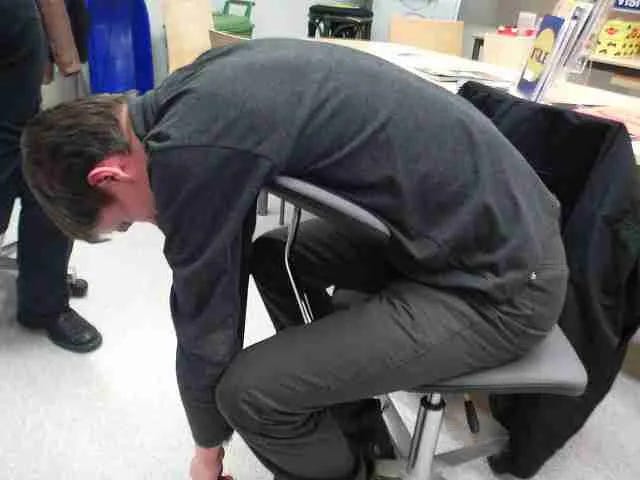Always Entertained, Never Thinking
Why boredom is the hidden engine of creativity—and why we’ve destroyed it.
We live in a culture that cannot stand silence.
The second we feel the twinge of boredom, we reach for a screen.
Scroll. Swipe. Tap.
We’re plugged in before we even notice the pause.
But here’s the paradox: the very thing we avoid—boredom—is the thing we need most.
Because boredom isn’t just empty time. It’s fertile ground.
It’s where creativity germinates, where connections spark, and where innovation is born.
And right now, we’re paving over that ground with a never-ending feed of distraction.
The Death of Small Boredoms
Not long ago, I was standing in line at a ramen shop. Behind me was a family—mom, dad, and daughter. The girl was maybe eight. Instead of fidgeting, talking, or looking around, she held a full-size iPad inches from her face, headphones clamped tight, absorbed in some video.
She wasn’t waiting in line. She was gone. The world around her—her parents, the smells of broth, the chatter of people—was irrelevant. She had been anesthetized against boredom.
This isn’t just about kids. Adults do it too.
The moment we hit a red light, we grab the phone.
The moment we’re waiting for coffee, we scroll.
The moment silence enters the room, we rush to fill it.
We’ve killed the micro-moments.
The small, ordinary pauses where thought used to sneak in.
Consumption vs. Creation
Let’s be honest about what most of us consume when we run from boredom.
It isn’t TED Talks. It isn’t life-changing philosophy.
It’s cheap dopamine.
YouTube shorts. TikTok dances. X spats. Instagram envy.
Ninety percent of it is empty calories.
It doesn’t feed us. It sedates us.
And when you’re sedated, you’re not creating.
The irony is that creativity thrives in boredom.
When external stimuli are gone, the brain kicks into gear. It starts connecting dots on its own. It wanders. It recombines.
That’s why your best ideas show up in the shower, while gardening, or while staring out a bus window.
Not while you’re doom-scrolling X.
The Yard Lesson
When I was a kid, my father made us dig in the yard every spring. At first, I hated it. The shovel was heavy, the soil hard, and the task monotonous.
But then I noticed something. While my body dug, my mind drifted.
I thought. I planned. I imagined.
I had conversations with myself.
I followed threads of ideas I never would have noticed if I had been distracted.
It was boredom with a side of labor—and it became my personal incubator.
When my father eventually replaced us with a rented rototiller, I kept digging by hand anyway. Because I realized the value wasn’t in the soil. It was in the space to think.
Boredom as a Creative Tool
Boredom forces the brain to self-stimulate.
Instead of reacting to a feed, it produces its own.
History is littered with breakthroughs that were born of boredom, of wandering thought:
Newton sitting under a tree.
Archimedes lowering into a bath.
Countless unnamed scientists, artists, and inventors letting their minds drift in mundane moments.
Even today, most of us have felt it: that flash of insight while washing dishes, mowing the lawn, or staring at the ceiling.
That’s not coincidence. That’s the brain doing what it was designed to do.
The Innovation Crisis
Here’s the disruptive claim: our avoidance of boredom is an innovation killer.
We’ve trained ourselves, and our children, to fill every gap with noise. We’ve removed the white space from our lives. And in doing so, we’ve removed the conditions where deep, original thought can emerge.
When was the last time you sat still with no phone, no laptop, no book—just yourself?
If the answer is “never” or “not in years,” ask yourself: where is your next big idea going to come from?
Not from another viral TikTok. Not from a Twitter thread. Not from binge-watching someone else’s story.
It comes from silence. It comes from boredom.
The Boredom Hack for Innovators
So how do we reclaim it? How do we build boredom back into lives that are designed to eliminate it?
Try this:
Deliberately remove stimuli.
Leave your phone behind when you walk. Turn off music in the car. Don’t fill silence immediately.Redefine boredom as incubation.
See empty time not as wasted, but as compost. Fertile ground where raw material breaks down into nutrients for new ideas.Use simple labor.
Physical, repetitive tasks—gardening, cooking, cleaning—free the mind to wander. They’re boredom engines.Defend your micro-moments.
Waiting in line? Don’t scroll. Let your brain watch itself.Let kids be bored.
Stop handing them a screen at the first sign of restlessness. Boredom is their first training ground for imagination.
The Future of Boredom in an Always-On World
Here’s the challenge: the world is only getting noisier.
AI-driven feeds will be better at predicting and filling every gap. Personalized distractions will be delivered with surgical precision.
If we don’t learn to reclaim boredom, we may lose it forever.
And with it, we lose the conditions for deep innovation.
Imagine a future where every spare second is optimized away. Where every human is permanently entertained, permanently consuming, and permanently occupied.
It’s efficient.
It’s profitable.
And it’s the death of creativity.
Choose the Bored Path
Boredom is not a bug. It’s a feature.
It is the unstructured, unmonetized, unoptimized space where human imagination actually lives.
If you want to think differently, if you want to innovate, if you want to break out of the algorithmic feedback loop—you need to step away from the feed.
Sit still.
Do nothing.
Be bored.
Because in boredom, the mind begins to remember what it was built to do:
create.




Magic in the mundane. And the last time I sat with nothing... is quite regular. I try to start the first hour or so of my day without the screen. And I could use more boredom time still.